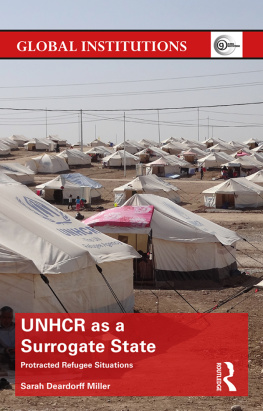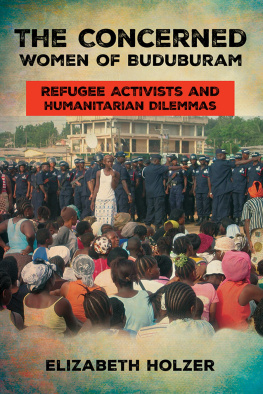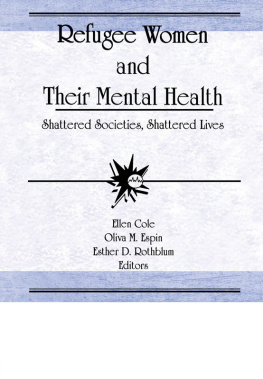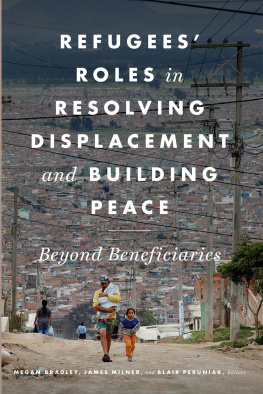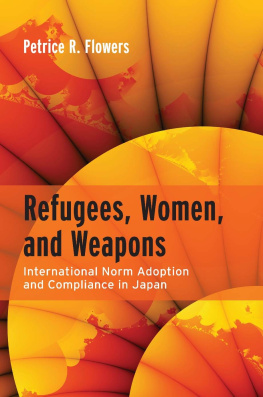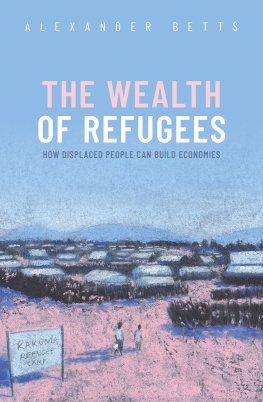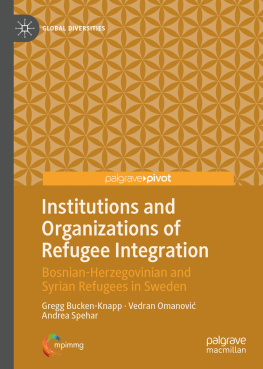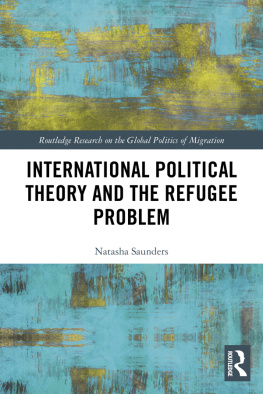UNHCR as a Surrogate State
International organizations (IOs) that focus on refugees are finding themselves spread increasingly thin. As the scale of displacement reaches historic levelsprotracted refugee situations now average 26 yearsorganizations are staying for years on end, often working well beyond their original mandates. In some cases, IOs may even act as a substitute for the state. This book considers the conditions under which surrogacy occurs and what it means for the organizations influence on the state. It looks specifically at the United Nations High Commissioner for Refugees (UNHCR) as a surrogate state in protracted refugee situations in Kenya, Tanzania, and Uganda.
Drawing on international relations literature and empirical studies of UNHCR, Miller asks how and when UNHCR takes on surrogacy, and what effect this has on its ability to influence how a host state treats refugees. The book develops a framework for understanding IOs at the domestic level and presents a counterintuitive finding: IO surrogacy actually leads to less influence on the state. In other words, where UNHCR behaves like a state, it is less able to influence a host states refugee policies.
UNHCR provides an excellent example of an IO working on multiple levels, making this book of great interest to practitioners and policymakers working on refugee-related issues, and scholars of forced migration, international relations, international organizations, and UNHCR.
Sarah Deardorff Miller teaches international relations and refugee-focused courses with Columbia University, American University and the University of London. She previously worked, and continues to consult, with NGOs, and think tanks and recently released a book on Syrian displacement.
Routledge Global Institutions Series
Edited by Thomas G. Weiss
The CUNY Graduate Center, New York, USA
and Rorden Wilkinson
University of Sussex, Brighton, UK
About the series
The Global Institutions Series provides cutting-edge books about many aspects of what we know as global governance. It emerges from our shared frustrations with the state of available knowledgeelectronic and print-wise, for research and teachingin the area. The series is designed as a resource for those interested in exploring issues of international organization and global governance. And since the first volumes appeared in 2005, we have taken significant strides toward filling conceptual gaps.
The series consists of three related streams distinguished by their blue, red, and green covers. The blue volumes, comprising the majority of the books in the series, provide user-friendly and short (usually no more than 50,000 words) but authoritative guides to major global and regional organizations, as well as key issues in the global governance of security, the environment, human rights, poverty, and humanitarian action among others. The books with red covers are designed to present original research and serve as extended and more specialized treatments of issues pertinent for advancing understanding about global governance. And the volumes with green coversthe most recent departure in the seriesare comprehensive and accessible accounts of the major theoretical approaches to global governance and international organization.
The books in each of the streams are written by experts in the field, ranging from the most senior and respected authors to first-rate scholars at the beginning of their careers. In combination, the three components of the seriesblue, red, and greenserve as key resources for faculty, students, and practitioners alike. The works in the blue and green streams have value as core and complementary readings in courses on, among other things, international organization, global governance, international law, international relations, and international political economy; the red volumes allow further reflection and investigation in these and related areas.
The books in the series also provide a segue to the foundation volume that offers the most comprehensive textbook treatment available dealing with all the major issues, approaches, institutions, and actors in contemporary global governanceour edited work International Organization and Global Governance (2014)a volume to which many of the authors in the series have contributed essays.
Understanding global governancepast, present, and futureis far from a finished journey. The books in this series nonetheless represent significant steps toward a better way of conceiving contemporary problems and issues as well as, hopefully, doing something to improve world order. We value the feedback from our readers and their role in helping shape the on-going development of the series.
A complete list of titles can be viewed online here: www.routledge.com/Global-Institutions/book-series/GI.
Global Governance and China (2018)
edited by Scott Kennedy
The League of Nations (2018)
by M. Patrick Cottrell
The British Media and the Rwandan Genocide (2018)
by John Nathaniel Clarke
The Millennium Development Goals (2018)
by Sakiko Fukuda-Parr
Sustainable Development Goals and the UN Goal-Setting (2017)
by Stephen Browne
Inside the United Nations (2017)
by Gert Rosenthal
International Institutions of the Middle East (2017)
by James Worrall
The Politics of Expertise in International Organizations (2017)
edited by Annabelle Littoz-Monnet

